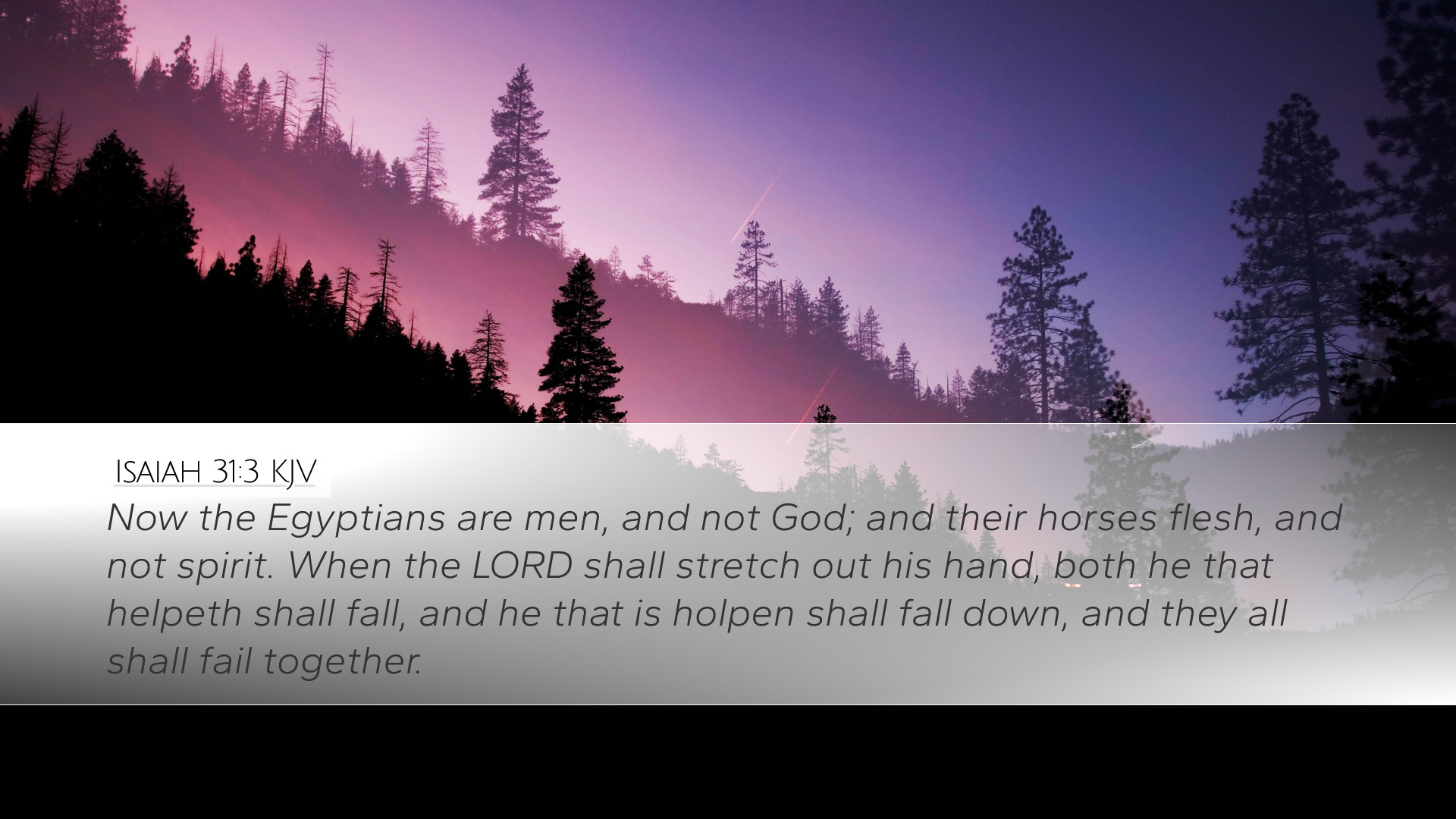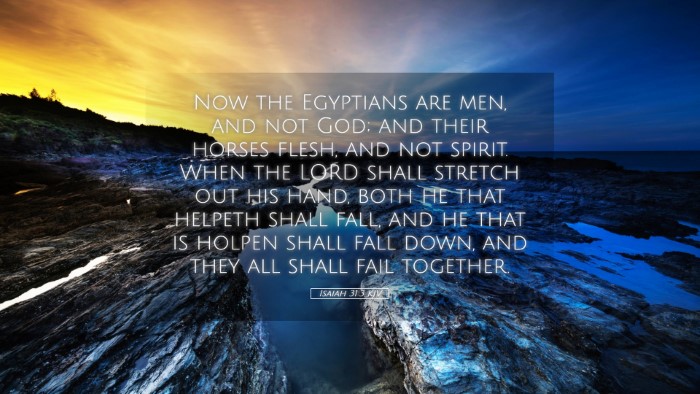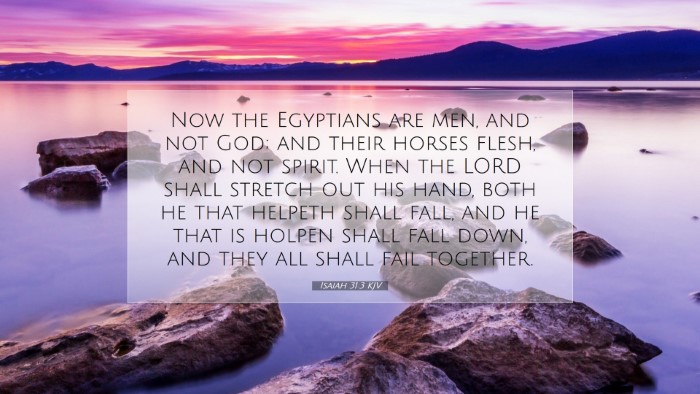Bible Commentary on Isaiah 31:3
The verse Isaiah 31:3 states:
“Now the Egyptians are men, and not God; and their horses flesh, and not spirit: when the Lord shall stretch out his hand, both he that helpeth shall fall, and he that is holpen shall fall down, and they all shall fail together.”
Contextual Background
This chapter of Isaiah addresses the dangers of relying on human strength rather than divine assistance. The people of Judah were tempted to seek help from Egypt against their enemies, particularly the Assyrians. The prophet Isaiah, inspired by God, warns them of the futility of seeking refuge in mere men or worldly resources.
Commentary Insights
1. The Nature of Human Help
Matthew Henry emphasizes the limitations of human beings, describing them as "men, and not God." He points out that while humans possess physical strength and wisdom, these attributes ultimately fall short when confronting divine matters. The reference to Egyptians highlights their strength in warfare and chariots, but Henry reminds us that these are earthly means that cannot secure true safety.
2. Flesh vs. Spirit
Albert Barnes offers profound insight regarding the distinction between "flesh" and "spirit." He notes that the reliance on flesh—representing human capabilities—is inherently weak and transitory. In contrast, the spirit represents divine power and strength. Barnes articulates that trusting in God’s omnipotence is far superior to clinging to the fleeting aid of mere mortals.
3. Divine Sovereignty
Adam Clarke highlights the theme of God’s sovereignty over nations and individuals. The declaration, “when the Lord shall stretch out his hand,” signifies a decisive intervention from God. Clarke relates this to God’s judgment, suggesting that both allies and enemies will fall under God’s authority, underscoring the futility of putting trust in anyone but the Almighty.
Theological Significance
Isaiah 31:3 speaks powerfully to themes of faith, trust, and divine reliance. Theologically, it serves as a reminder of the transient nature of human wisdom and strength. The following are key theological insights derived from the verse:
- Trust in God Alone: The passage asserts that true safety lies in reliance on God’s strength rather than human alliances.
- The Impermanence of Earthly Powers: All human powers are subject to collapse, and the history of nations corroborates this truth.
- God's Judgment: Divine intervention in human affairs reflects God’s sovereignty; nothing can thwart His plans.
Historical Application
Throughout biblical history, we see examples where reliance on human help led to downfall. For instance, the alliances made by King Ahaz with Egypt (2 Kings 16:7-8) ultimately brought disaster. This verse serves as a warning and a lesson for contemporary believers to evaluate where they place their trust.
Practical Implications for Believers
Isaiah 31:3 calls Christians in today’s world to reassess their sources of security and comfort. The following practical implications emerge:
- Evaluate Alliances: Believers should critically examine their relationships and partnerships, ensuring they do not place greater trust in worldly institutions than in God.
- Seek Divine Help: In times of trouble, the faithful are reminded to call upon God first, appealing to His supernatural strength rather than relying solely on human intervention.
- Encourage Others: Pastors and leaders should teach their congregations about the importance of divine reliance, encouraging them to trust in God’s faithfulness.
Conclusion
In conclusion, Isaiah 31:3 compels us to recognize the ultimate source of our strength. By drawing from the insights of esteemed commentators like Matthew Henry, Albert Barnes, and Adam Clarke, we gain a deeper understanding of the verse's implications. The passage serves as an admonition against misplaced trust, urging believers to anchor their faith in God, whose power far exceeds that of any human ally.


